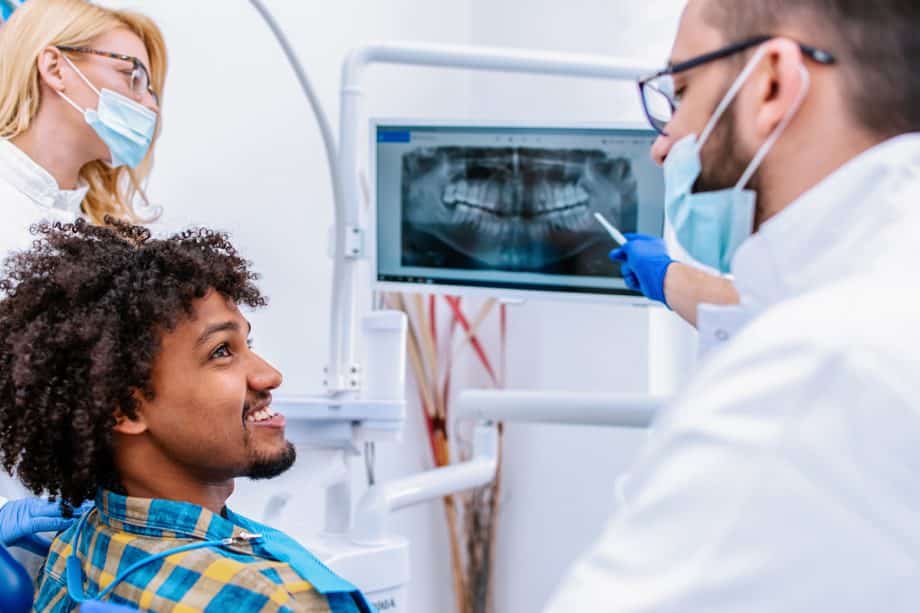A tooth should not hurt, ache, or cause you discomfort from a new filling for an extended period of time. Any sensitivity from a tooth filling should be expected to go away quickly, at least within two to four weeks.
But just because it should not hurt or be sensitive, doesn’t mean that it can’t sometimes occur. So, if you’re experiencing sensitivity after a filling and it doesn't feel like it is getting any better during that period of time, or if the sensitivity or discomfort lasts longer than four weeks, it’s important to contact your dentist.
Why does this occur? Let’s take a look at what can cause tooth sensitivity after a filling and when that sensitivity can become worrisome.
What Exactly is Tooth Sensitivity?
Sensitivity is often experienced when you find that you have a slight ache or a feeling of discomfort when you have a very hot and cold foods or drinks. If you have sensitive teeth, after dental work, such as dental fillings or tooth extractions, you may experience the same type of sensitivity and discomfort. Over 45 million adults in the U.S. alone experience tooth sensitivity. The reason? Usually the reason is nerve inflammation inside the tooth after you’ve had a procedure performed.
While it is perfectly normal to experience some tooth sensitivity right after you’ve had a dental procedure, if that sensitivity continues for weeks or months afterwards, it can be the sign of an issue that requires treatment so that it doesn’t become severe.
What Causes Long Term Tooth Sensitivity or Discomfort?
Long term tooth sensitivity after dental work can be caused by a variety of reasons. These include:
- A dental filling that interferes with bite
If a dental filling is placed so that it disrupts your ability to bite, it can deteriorate when you chew. The deterioration can cause cracks or fissures in the filling, or the filling could break off and expose the cracked or broken tooth. If a cavity filling is incorrectly placed, visiting a dentist to reshape it is the solution.
- Infection
Although unlikely, there’s always a small chance that an infection has occurred following the cavity filling, which will then cause discomfort and pain.
- Cracks and damage
You may also experience a crack or damage to the teeth or the cavity filling itself. The filling might expose nerves or tissues that are inside the affected tooth, causing tooth sensitivity to occur particularly if that filled tooth experiences cold or sudden pain.
- You have sensitive teeth
Sometimes, you simply may have very sensitive teeth which are triggered by the placement of a filling. If this is the case, there are some things you can do to alleviate your filled tooth sensitivity.
If this is the case, you can:
- Use a toothpaste for sensitive teeth
- Brush regularly
- Gargle with warm, salty water
- Allergic reaction can cause sensitivity
Finally, if you’re allergic to the tooth filling material that is used, the filling can also become sensitive. If you have had an allergic reaction in the past, be sure to tell your dentist before receiving a filling procedure.
When Should You Visit Your Dentist for Tooth Sensitivity or Pain After a Filling?
If you’re experiencing tooth sensitivity or pain months after a cavity filling procedure, it’s extremely likely that there is a reason. Remember, if tooth sensitivity is still occurring more than a few weeks after a filling, it means something is wrong.
And it also means that you should see an experienced dentist who can determine the problem and find a treatment solution to end tooth sensitivity and pain.
Reach Out to Us Today
At Gold Coast Smiles in Glen Cove, NY, we are here to help. If you’re having an issue with extended tooth sensitivity or discomfort from a filling, just give us a call, today.


